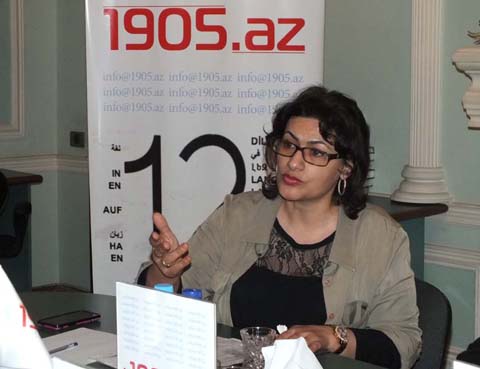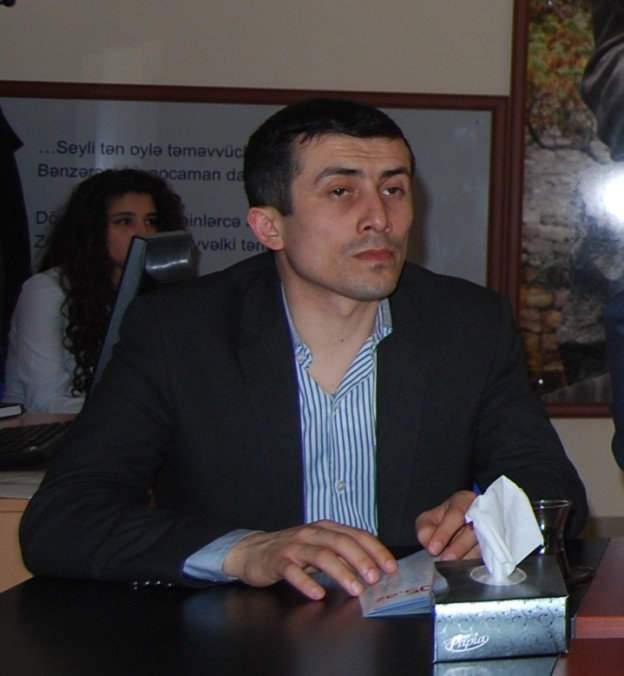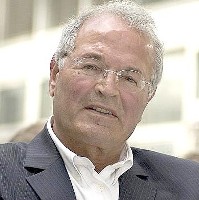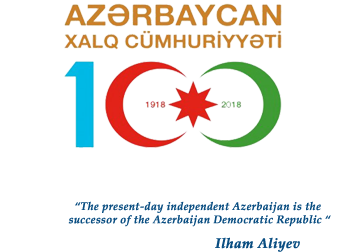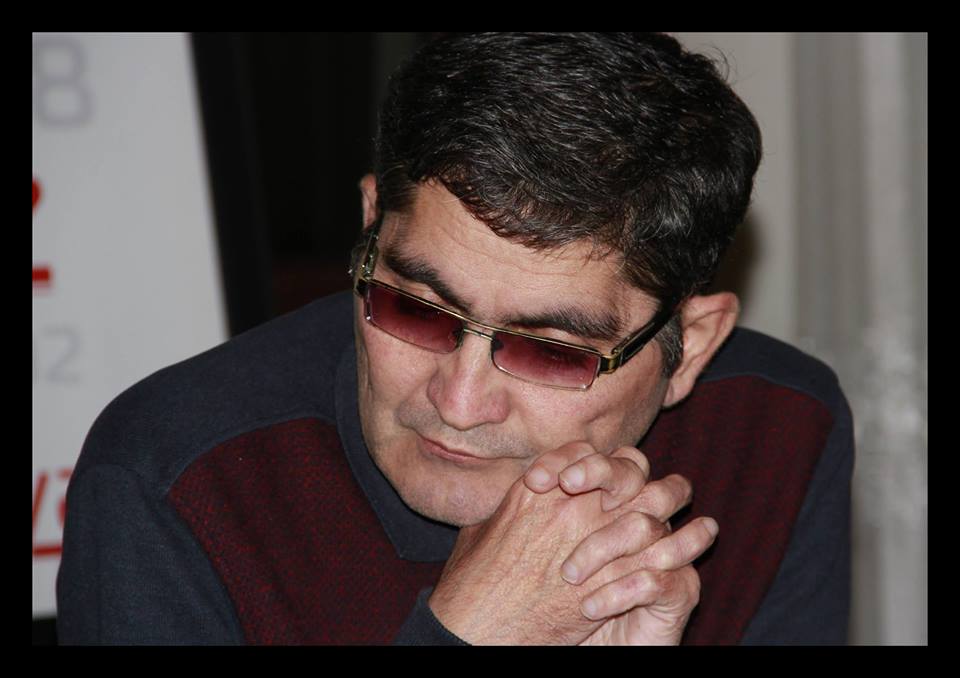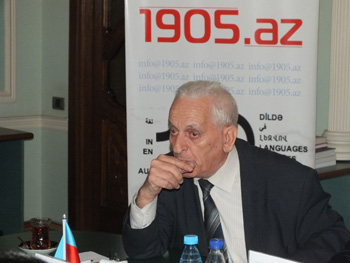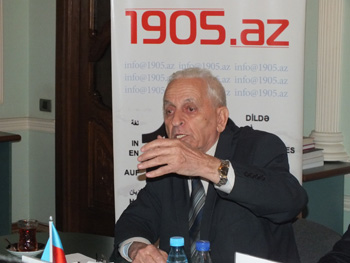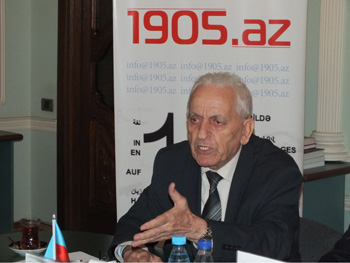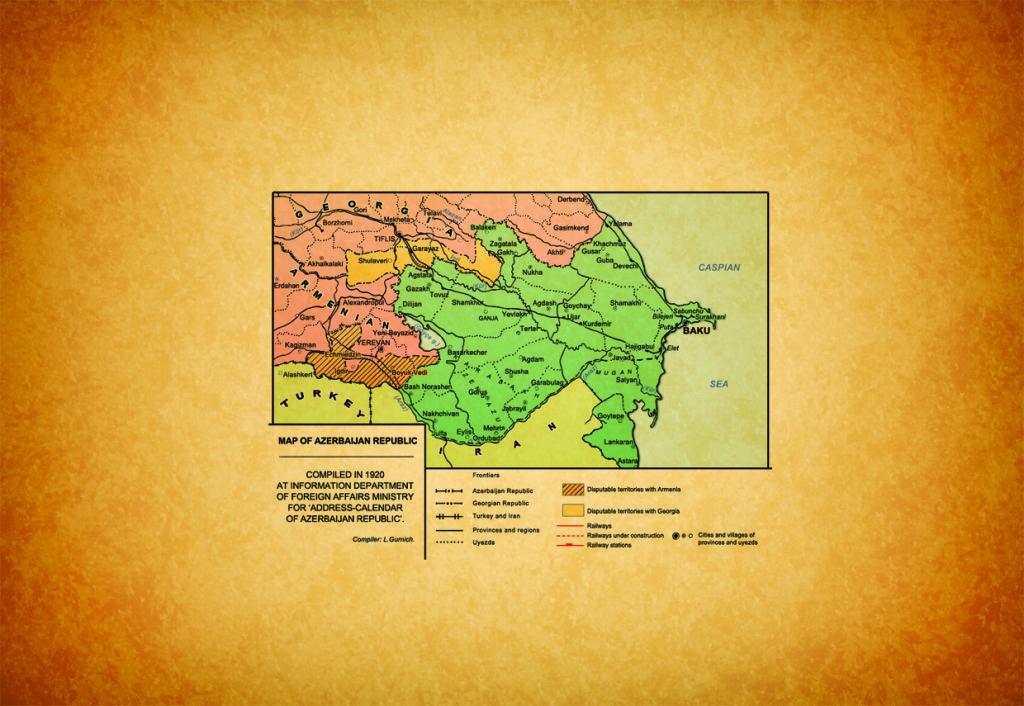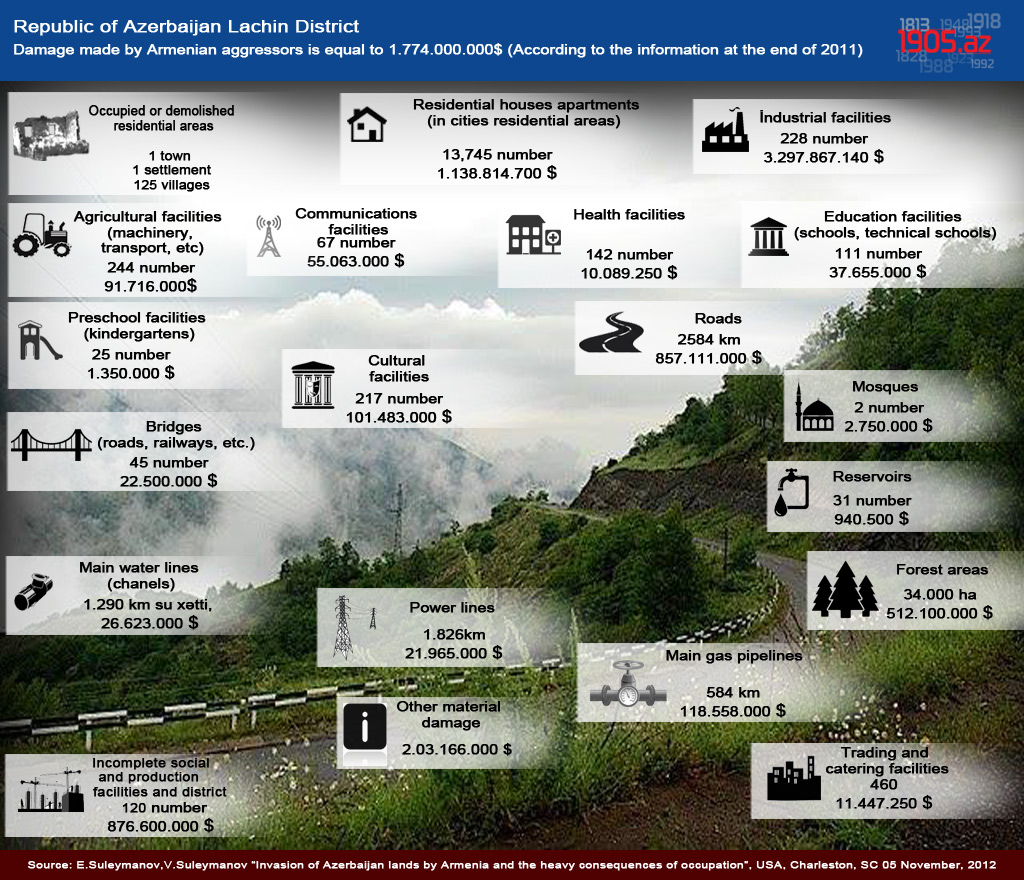The next interlocutor of 1905.az is the Director of the Center for Strategic Studies Farhad Mammadov.
– Mr. Mammadov, you have been serving as the head of the Center for Strategic Studies (SAM) under the President of the Republic of Azerbaijan since 2012. What events has the Center organized abroad in order to inform the world community on the Armenian-committed genocide and forced deportations against the Azerbaijanis, Armenia`s aggression against Azerbaijan during this period?
– The Center for Strategic Studies under the President of the Republic of Azerbaijan has been operating for six years. As a new think tank, the Center has formed qualified professionals, identified internal and foreign policy, set up priority areas of Azerbaijan that meet the requirements of the national economic strategy over six years.
Naturally, one of the Center’s main research topics is the Armenian-Azerbaijani conflict over Nagorno-Karabakh. Our activities on this issue have four directions. The first direction involves the solution of the conflict within the framework of international law. Our experts are engaged in examining international legal acts and documents on analogous problems, elaborating relevant legal recommendations, conducting scientific researches, publishing books and magazines in various languages. Simultaneously, we maintain intense contacts with foreign partners; books on the conflict are ordered within the framework of scientific cooperation. Recently, a new collection of documents was published and distributed for creating an additional database for local and foreign experts. The collection includes the documents the international organizations have adopted on the Nagorno-Karabakh conflict so far.
The second direction of our activities is the Center`s involvement in researches and relevant assistance. One of our main aims is to provide real support to the Azerbaijani community of Nagorno-Karabakh, to ensure active participation of the community representatives in international events. It is necessary to achieve international circulation of the concept “Azerbaijani population and its problems” as the people of Nagorno-Karabakh include not only Armenians, but also ethnic Azerbaijanis. At the same time, we must ensure the participation of the Azerbaijani community as an interested party in a certain stage of the negotiations. Furthermore, when visiting Azerbaijan, representatives of international organizations such as OSCE Minsk Group should establish close contacts with Nagorno-Karabakh’s Azerbaijani community and learn its position as well. After all, the conflict affected party is the Azerbaijani population of Nagorno-Karabakh.
Our next focus is active participation in exposing the lies and slander by the Armenian propaganda, bringing the truth on Azerbaijan to the world community. In this regard, we have established contacts with a number of prominent foreign authors, launched several projects.
The Center`s fourth direction is to strengthen the activities against the claims that the Nagorno-Karabakh problem is a “frozen conflict”. Time and the international experience show that military-political conflicts referred to as “frozen conflicts” usually get lost out of focus and control of international community, the relevant approach changes, negotiations lose intensity, the activities on problem solution get indefinitely suspended. This is undesirable for us. In this regard, our experts seriously analyze ethnic and territorial conflicts in Europe. While peace prevails in Europe at present, ethnic and territorial conflicts dominated in the continent for a long time. Another goal of this research is to destroy the political myth on “impossibility of co-existence of Azerbaijanis and Armenians” spread by the Armenian authorities.
– During this time, Armenian propaganda has nor been inactive either. The Armenians attempt to propagate the so-called “Armenian genocide”, promote Nagorno-Karabakh as Armenian territory. What kind of problems in this connection does the Center face? What measures are carried out to overcome the obstacles?
– First of all, when speaking of information war, we should pay attention to its outbreak in the late 1980s. When comparing the opportunities of Azerbaijanis and Armenians on shaping public opinion around the world, it is obvious that the other party has greater potential. On one hand, the Armenian diaspora formed over the centuries was a strong factor. On the other hand, the Armenians were the only people in the USSR, which enjoyed favorable conditions for maintaining direct contact with their diaspora. The official starting point of the information war around Nagorno-Karabakh conflict is rather symbolic. It was started by the interview of the Armenian academician A.Aghambekian to French newspaper L`Humanite.
Many factors had a significant effect on forming wrong public opinion in early phase of the conflict. At the same time, the processes in the 1990s made Azerbaijani authorities pay more attention on internal problems. As a result, a substantial gap appeared in the field of creating an objective attitude towards Azerbaijan`s realities. However, the situation radically changed after the national leader Heydar Aliyev returned to power; he managed to attract the world’s attention towards Azerbaijan. Over the years, domestic political situation was stabilized, successful foreign policy was started, the country has entered the stage of economic development, military defense potential was strengthened, economic projects of regional and international importance were implemented. This policy is successfully carried out also today. I would like to emphasize that President Ilham Aliyev`s foreign policy strategy, purposeful activity on conflict regulation and wise diplomacy rely on Azerbaijan`s power and economic development.
– The next visit of co-chairs of the OSCE Minsk Group to Azerbaijan has started. How would you evaluate their activities for resolving the conflict?
– The format of visits and negotiations is known. The countries included in the OSCE Minsk group are superpowers. They are permanent members of the UN Security Council and have voted for four resolutions on the Nagorno-Karabakh conflict. However, there is no common and objective approach regarding the settlement of the problem. The question arises then: isn’t it possible to involve other countries in conflict regulation, thereby increasing the efficiency of negotiations?
As noted by President Ilham Aliyev, Azerbaijan is in favor of using international law on conflict regulation. We always emphasize that, if international law is violated with regard to one specific conflict, a similar situation regarding other problems may arise. The example of conflicts which have been happening in Europe and other continents over the last decade shows that the co-chairs may approach principles of international law differently for their own interests. It is the crisis of international law. If all three countries have accepted the fact of occupation of Azerbaijani lands and confirmed the Republic of Armenia as an occupant, sanctions must be applied against Armenia then. This is what Azerbaijan wants. Unfortunately, we do not see it. Azerbaijan doesn’t claim Armenian territories. However, as stated by Ilham Aliyev, Azerbaijan will not tolerate the creation of a second Armenian state in Azerbaijan`s lands.
– The year 2015 marks the 110th anniversary of the Armenian policy of genocide and ethnic cleansing against Azerbaijanis. The portal 1905.az is part of the ASCDA`s project in this connection. What could you tell about the relevant plans of the Center?
– We appreciate the ASCDA`s successful project, which is a great contribution to our common cause. We are ready to support it. In general, the tragedy that happened in early 20th century should be objectively studied and widely promoted. Of course, the Center has strengthened its activities in this direction, too.
– Does the Center collaborate with related organizations in Turkey for fighting back the Armenian lies?
– In order expose Armenian lies and slander, we carry out projects in foreign countries, together with our foreign partners and individual authors. We have offered collaboration to our Turkish colleagues, too. The projects can also include publishing books, organizing local, regional and international events. We support objective evaluation of genocide facts and work in this direction. One of our Turkish partners, the organization called AVIM publishes a magazine “Armenian studies”. Its recent edition dedicated to Perinçek v. Switzerland, published my article titled “So-called Armenian genocide and Perinçek judgement”. Let me clarify that Switzerland adopted a law on criminalizing denial of the so-called Armenian genocide and caused a major political and legal scandal. However, later the European Court of Human Rights acquitted Doğu Perinçek.
In 2015, we plan to organize a series of events dedicated to the 110th anniversary of the genocide of Azerbaijanis. First of all, our diaspora in foreign countries should be and are involved in these activities. We should deliver the truth about the genocide rapidly, correctly, and in a right way.
Aynur Huseynova
1905.az

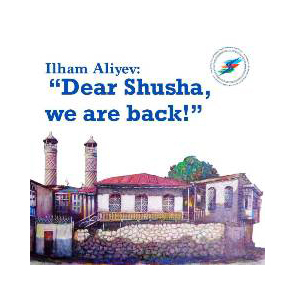
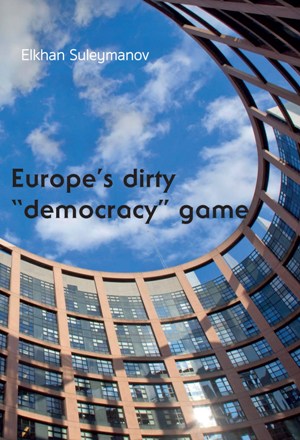
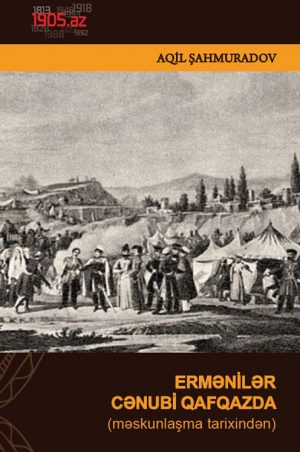
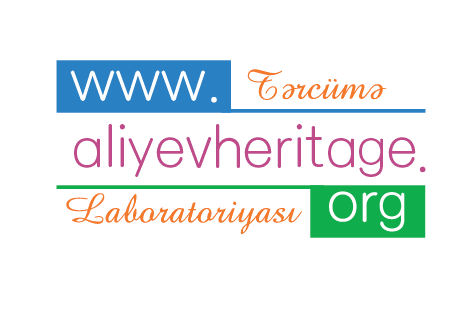




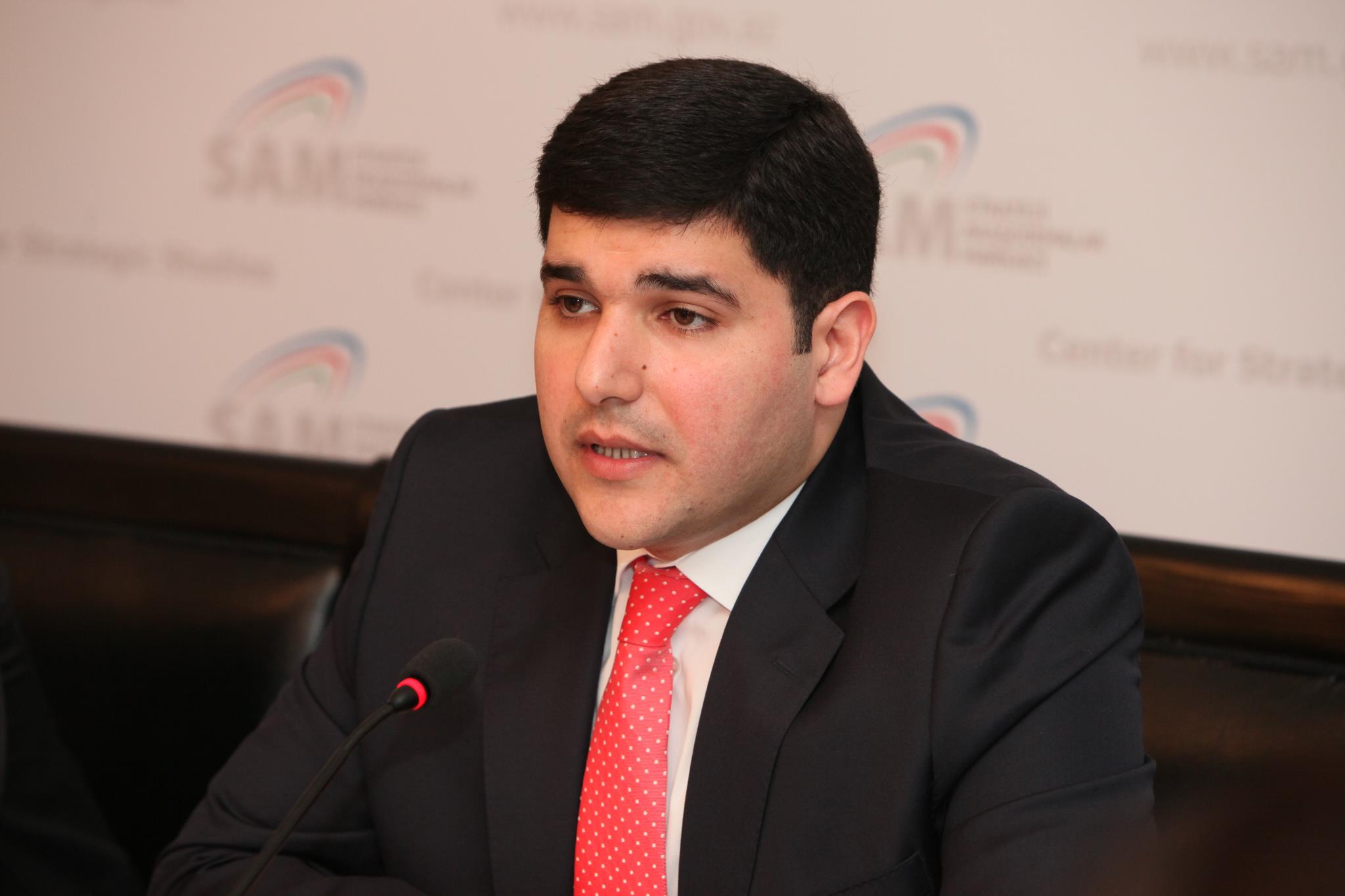
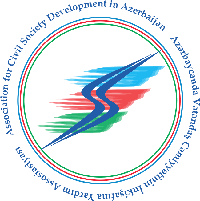
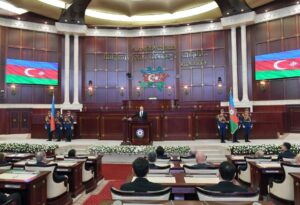 Inauguration ceremony of President of Azerbaijan Ilham Aliyev was held
Inauguration ceremony of President of Azerbaijan Ilham Aliyev was held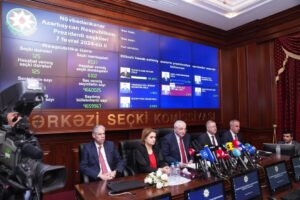 Ilham Aliyev wins presidential election with 92.05 percent of votes VIDEO
Ilham Aliyev wins presidential election with 92.05 percent of votes VIDEO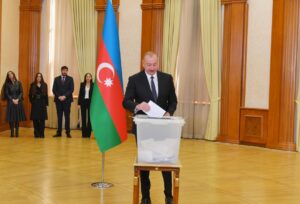 President Ilham Aliyev, First Lady Mehriban Aliyeva and family members voted in Khankendi VIDEO
President Ilham Aliyev, First Lady Mehriban Aliyeva and family members voted in Khankendi VIDEO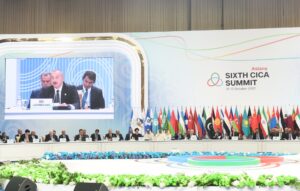 Plenary session of 6th Summit of Conference on Interaction and Confidence Building Measures in Asia gets underway in Astana. President Ilham Aliyev attends the plenary session VIDEO
Plenary session of 6th Summit of Conference on Interaction and Confidence Building Measures in Asia gets underway in Astana. President Ilham Aliyev attends the plenary session VIDEO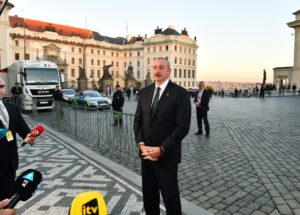 President Ilham Aliyev was interviewed by Azerbaijani TV channels in Prague VIDEO
President Ilham Aliyev was interviewed by Azerbaijani TV channels in Prague VIDEO



